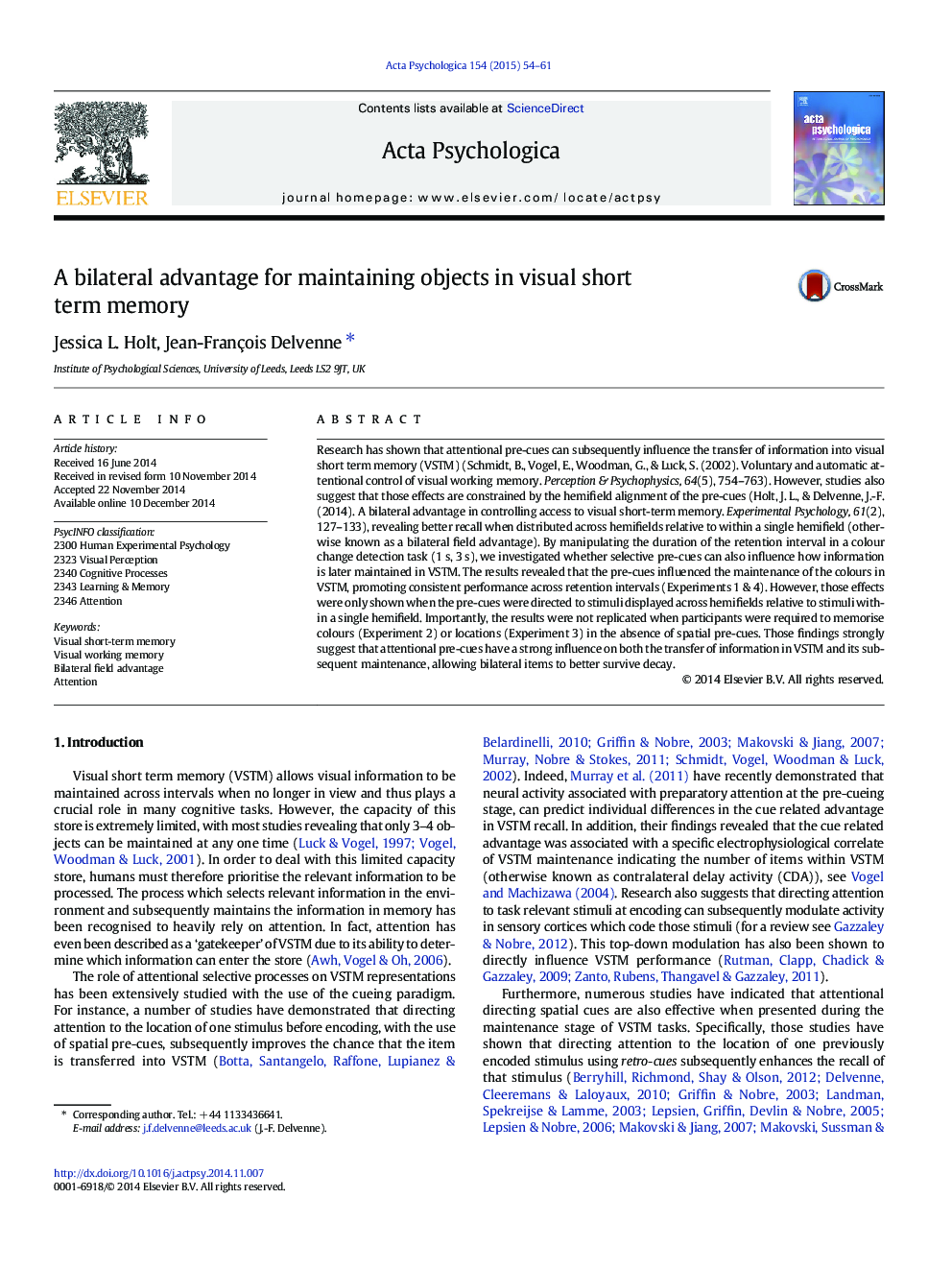| Article ID | Journal | Published Year | Pages | File Type |
|---|---|---|---|---|
| 919753 | Acta Psychologica | 2015 | 8 Pages |
•Selective attention at encoding influences the maintenance of items in VSTM.•Spatial pre-cues promote a bilateral advantage within VSTM maintenance.•The magnitude of the bilateral advantage increases with time.•Bilateral items better survive decay when spatially selected at encoding.
Research has shown that attentional pre-cues can subsequently influence the transfer of information into visual short term memory (VSTM) (Schmidt, B., Vogel, E., Woodman, G., & Luck, S. (2002). Voluntary and automatic attentional control of visual working memory. Perception & Psychophysics, 64(5), 754–763). However, studies also suggest that those effects are constrained by the hemifield alignment of the pre-cues (Holt, J. L., & Delvenne, J.-F. (2014). A bilateral advantage in controlling access to visual short-term memory. Experimental Psychology, 61(2), 127–133), revealing better recall when distributed across hemifields relative to within a single hemifield (otherwise known as a bilateral field advantage). By manipulating the duration of the retention interval in a colour change detection task (1 s, 3 s), we investigated whether selective pre-cues can also influence how information is later maintained in VSTM. The results revealed that the pre-cues influenced the maintenance of the colours in VSTM, promoting consistent performance across retention intervals (Experiments 1 & 4). However, those effects were only shown when the pre-cues were directed to stimuli displayed across hemifields relative to stimuli within a single hemifield. Importantly, the results were not replicated when participants were required to memorise colours (Experiment 2) or locations (Experiment 3) in the absence of spatial pre-cues. Those findings strongly suggest that attentional pre-cues have a strong influence on both the transfer of information in VSTM and its subsequent maintenance, allowing bilateral items to better survive decay.
